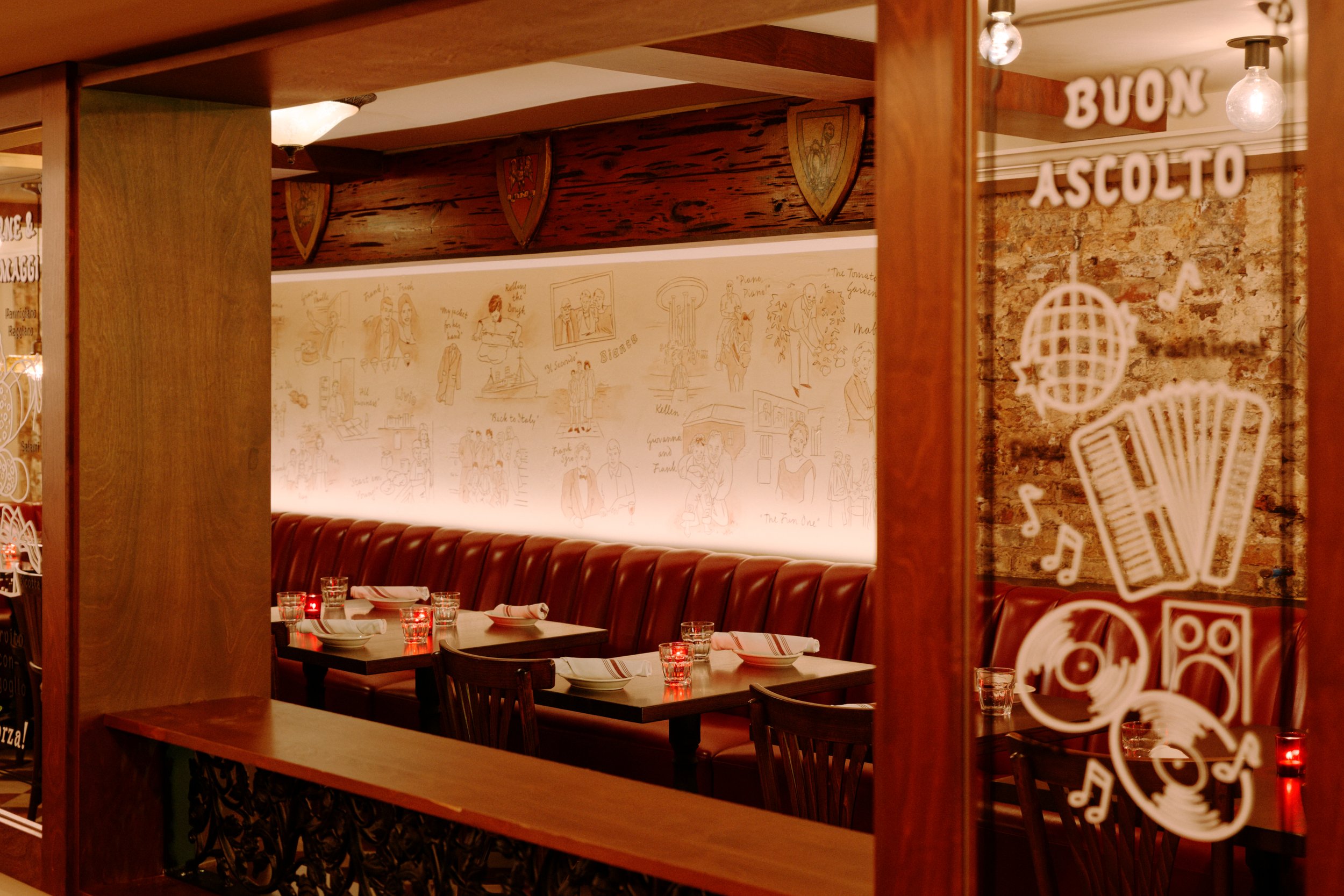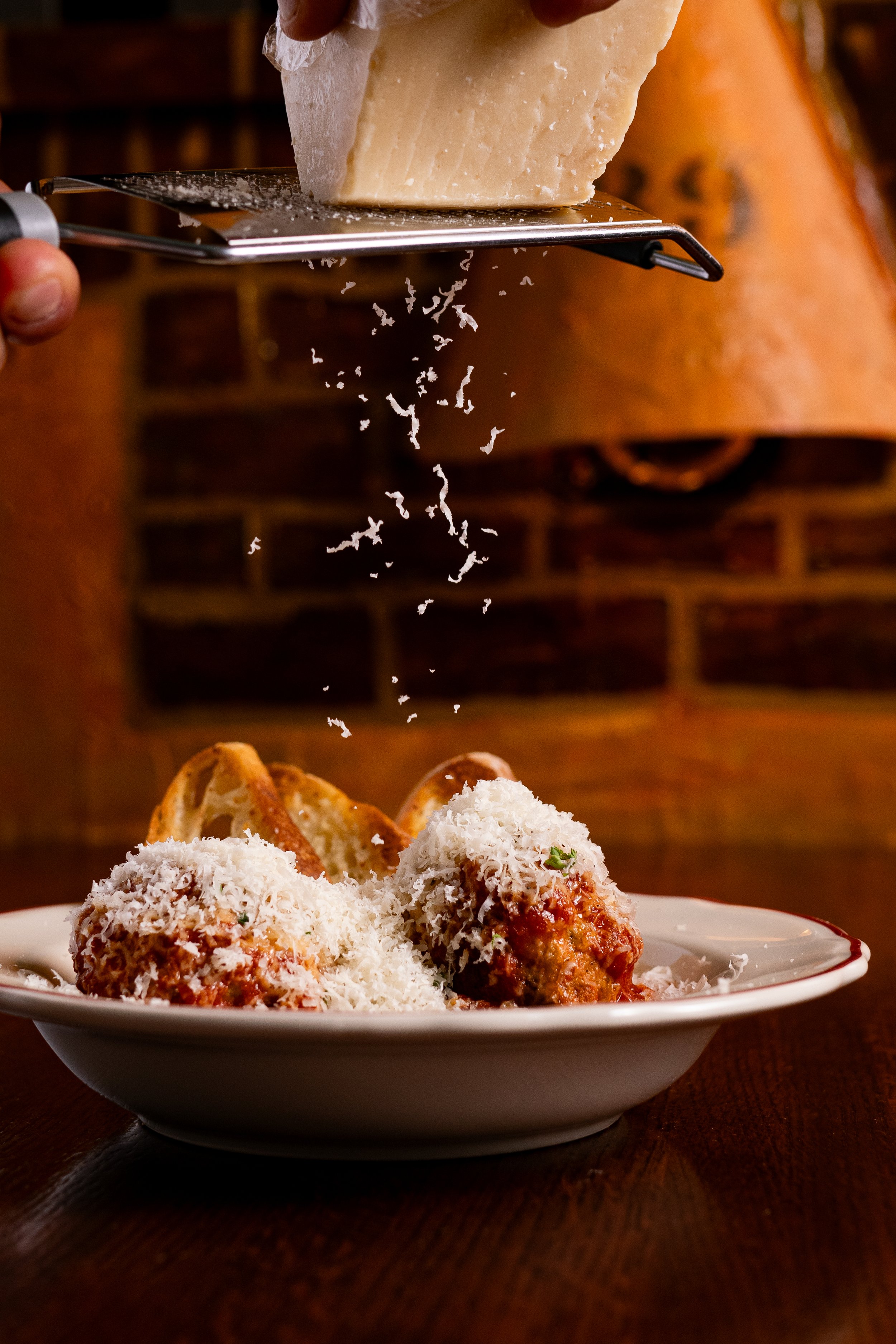
Our Story
Until 1924, it all begins in Italy…
And like all good Italian stories, it starts and ends with “Buon Appetito.”
An immigrant from a small town–nestled in the picturesque, rolling hills of Tuscany–Alfredo Capitanini came to Chicago in 1924 with little money, but big dreams. He knew nothing about restaurants but was eager to work, so he took a job as a dishwasher and began to build his ‘Sogno Americano’. Just a few years later, The Village was born.


Timeline
1920s
In the wake of WW1, with Italy suffering severe economic depression and political instability, Alfredo Capitanini left his home in the foothills of Tuscany to come to America –the land of opportunity!
It was 1924 when he first stopped in Chicago where an uncle had promised to get him a job. With little work experience other than tending to plants at his family’s nursery business back in Lucca, Alfredo started as a dishwasher at a restaurant named “New Italy”…just next door to what would later become the Italian Village.
Until 1927
An eager kid in his 20s, Alfredo moved quickly from dishwashing to cooking. Working two jobs and learning everything he could, he progressed through the ranks of the kitchen until he became a Chef. In his own words, he never looked at the clock and never worried about money.
Sept. 1927
The real start of it all! Alfredo saw a restaurant lease available nearby, signed it, and opened Italian Village a few months later on September 20th, 1927. As the story goes, it was a full house from the start.
1930s
Despite the Great Depression, The Village continued to be popular with theatergoers, businessmen, and couples having a night on the town. With this continued success, Alfredo began to vacation back to Italy with his wife, Ada, and always made it a point to bring a few Italian recipes back home – cannelloni, manicotti, and chicken Vesuvio, to name just a few.
1940s
With WW2 beginning to involve both Italy and the United States and anti-Italian sentiment growing in the US – Alfredo drops the word “Italian” and starts referring to his restaurant as just “il Villaggio” — The Village.
The Village’s landlord put the building up for sale, Alfredo negotiated a deal to purchase it and took ownership in 1945. He rented out the other two floors – the first floor to a bar and the small basement to a tobacco shop.
1950s
The second generation began to lend a hand, with daughter Ave designing the newest venture, La Cantina Enoteca – an intimate Italian wine & piano bar on the building’s lower level. Shortly thereafter, his eldest son, Frank, joined the family business and started to takeover his role as the ‘Capo di Cuochi’. Frank inherited most of his father’s talents – a natural operator, gifted in the kitchen as well as with guests. Lastly, the youngest, Ray, joined the business after graduating college. At first unsure of how he wanted to be involved, Ray eventually found his calling in wine and PR.
1960s
Building on the tradition of opening new restaurants in the building, the 3 siblings banded together to open The Florentine Room, one of the first high-end Italian restaurants in America, in 1961. With a palatial dining room, tuxedoed waiters, and an abundance of tableside service – The Florentine Room became beloved by the stars of the day – from Frank Sinatra to Barbara Streisand to Luciano Pavarotti, showing that Italian cuisine, up until that point considered to be humble immigrant cuisine, could be extraordinary.
1980s
1990s
1970s
With 3 restaurants, and the three-martini lunch in full swing, business was booming. Skyscrapers were going up all around 71 W Monroe and between the construction crews, commodity traders, and attorneys, there was a line out the door and down the staircase from open until close.
Ray, with the help of Tom Abruzzini (dubbed his “mentor and tormentor”), started to build a monumental wine list focusing on bringing the very best Italian wines and more to our guests. Over the course of many marathon tastings lasting into the wee hours of the morning, and thousands of wines, the wine list wins Wine Spectator’s Grand Award in 1984.
At the same time, the 3rd generation began to join the business – first with Frank Jr., then Gina and Al, as well. They each figure out their natural roles – Frank Jr. starts in the kitchen then moves to the front of house (much like his father) while Gina leads the administrative and host teams and Al organizes and leads the business functions from finance to HR to operations.
After almost 30 years of Italian fine dining in Chicago, The Florentine Room was replaced with a project led by the 3rd generation team of Al, Gina, and Frank Jr. In 1990, they opened Vivere (“to live”) and once again the fabled space became one of the hottest Italian restaurants in the city, except this time – for a new generation of guests.
The Capitanini family starts Ferrari Festival as an annual charity event supporting Children’s Memorial hospital.
2000s
As the world around Italian Village went digital, moving faster and faster, the days of taking half-day, martini-fueled lunches start to fade. Fewer traders and attorneys crowd the bars, but theatregoers, families, and tourists replace them.
Vivere continued to gain prestige, earning accolades left-and-right including 3 stars from the Chicago Tribune and top ranks on lists of the best Italian restaurants in the city.
2010s
The Blackhawks win the Stanley Cup three (!) times, and parade past our tiny building! Meanwhile, the 4th generation starts to grow up much the same way as past generations, surrounded by family and pasta.
2020s
With a global pandemic to contend with, Italian Village is forced to close Vivere and La Cantina Enoteca to concentrate resources on keeping The Village open. The 4th generation, Giovanna and Jonathan, begin to take on leadership of the family business.
Today, with the Loop headed towards recovery from the dramatic changes caused by the pandemic, the sibling pair focus on rebuilding the trio of restaurants known as Italian Village – starting with opening Sotto & Bar Sotto in Fall 2024, a replacement for La Cantina Enoteca. Much like a generation prior, they hope to introduce the almost 100-year-old Italian Village complex to a new generation of guests.

Buon Appetito
Our service style is 'old school' we take care of our guests as family. Over 90+ years, we have been fortunate to build connections with thousands of guests that span generations of Chicagoans. We proudly bring celebrations and traditions to life, whether they are everyday escapes or major milestones. And we are so grateful to play a small part in so many life stories.
If you're a new guest, we hope we have the opportunity to celebrate life with you, and if you've been coming for years, grazie mille!
































